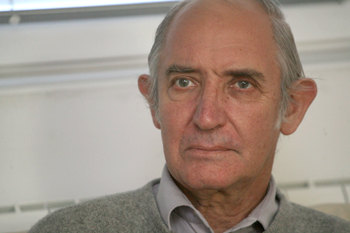A team of scientists has managed to produce electricity from hydrogen sulphide in the Black Sea. The discovery gives hope to inventors in search of new and environmentally friendly sources of energy. Hydrogen sulphide that is present in the Black Sea does not allow for life to exist in 90% of its waters, but it can still be valuable as a renewable energy source with great benefits to the economy. This is what prof. Venko Beshkov from the Institute of Chemical Engineering in Sofia, who led the experiments, says. The project involves also scientists from the Institute of Oceanology at BAS, as well as scientists from Georgia and Romania. According to prof. Beshkov, there were some 4.5 billion tons of hydrogen sulphide in the Black Sea, which could produce around 10-12 TWh annually. Calculations show the quantity of hydrogen sulphide formed in the sea for a year is 10 times more than the amount of natural gas Bulgaria buys. "There will be no greenhouse gas emissions in processing of water from the sea," Professor Beshkov explains and adds:
 "The idea is to transform energy from the deep waters of the Black Sea into electricity. We have developed an original fuel cell design, which allows for the use of hydrogen sulphide and oxygen from the air for the production of electricity. The idea of the processing technology belongs to us and the institute has been working on it for four years. During experiments the probes of the ‘Academic’ ship reached a depth of 1000 meters, where the concentration of hydrogen sulphide is high enough. We found out that by pumping out water from the deep sea we actually get much better results in comparison to laboratory experiments. There exist similar earlier experiments conducted by Bulgarian and Russian scientists for producing energy from seawater. The experiments then aimed at decomposition of hydrogen sulphide. However, this led to a large amount of energy used and lots of waste. In our work, the energy consumption is much lower than the energy we finally receive. Now the aim is to reach high powers of produced electricity, which would create practical interest among potential investors. Our work continues and we aim to improve the reliability of materials and mechanisms used in the fuel cell, in order for it to be more suitable for practical application. I do not want to make predictions about the future, but in a year or two we would have an electricity-producing facility located in the sea. The goal is to connect it to the national electricity grid and hopefully after proving successful, our project would attract serious investors. Currently, we enjoy the support and interest among fellow scientists. They closely follow the development of our project.”
"The idea is to transform energy from the deep waters of the Black Sea into electricity. We have developed an original fuel cell design, which allows for the use of hydrogen sulphide and oxygen from the air for the production of electricity. The idea of the processing technology belongs to us and the institute has been working on it for four years. During experiments the probes of the ‘Academic’ ship reached a depth of 1000 meters, where the concentration of hydrogen sulphide is high enough. We found out that by pumping out water from the deep sea we actually get much better results in comparison to laboratory experiments. There exist similar earlier experiments conducted by Bulgarian and Russian scientists for producing energy from seawater. The experiments then aimed at decomposition of hydrogen sulphide. However, this led to a large amount of energy used and lots of waste. In our work, the energy consumption is much lower than the energy we finally receive. Now the aim is to reach high powers of produced electricity, which would create practical interest among potential investors. Our work continues and we aim to improve the reliability of materials and mechanisms used in the fuel cell, in order for it to be more suitable for practical application. I do not want to make predictions about the future, but in a year or two we would have an electricity-producing facility located in the sea. The goal is to connect it to the national electricity grid and hopefully after proving successful, our project would attract serious investors. Currently, we enjoy the support and interest among fellow scientists. They closely follow the development of our project.”
English version: Alexander Markov
The Martenitsa Festival was held in Brussels f or the third consecutive year . Cultural organizations from Bulgaria, Romania and Moldova presented their country's traditions related to the "Baba Marta" holiday, which heralds spring. The initiative..
Measurement equipment installed at the Bulgarian Antarctic base "St. Kliment Ohridski" has been collecting valuable data on solar activity and its relation to the Earth's magnetic field for two months. The research is part of Bulgaria's first polar..
558 Bulgarians aged 18, selected from 1,785 applicants, will be able to embark on their dream journey by train across Europe, learn from other cultures and build new friendships. They have been selected to receive a free travel pass through the..
Exactly a month after the Bulgarian National Radio solemnly celebrated its 90th anniversary, history continues its dialogue with us, its authors. With a..

+359 2 9336 661
